 22 citations,
May 2012 in “Dermatologic Therapy”
22 citations,
May 2012 in “Dermatologic Therapy” Doctors should suggest hair replacement based on personal needs and stress scalp cleanliness to avoid skin problems.
 19 citations,
May 2011 in “Dermatologic Therapy”
19 citations,
May 2011 in “Dermatologic Therapy” The document suggests using hairpieces, wigs, and safe cosmetic techniques to hide hair loss from alopecia areata.
 16 citations,
January 2007 in “Journal of Obstetrics and Gynaecology”
16 citations,
January 2007 in “Journal of Obstetrics and Gynaecology” The document suggests various treatments for PCOS, including medication for menstrual issues, insulin resistance, and excess hair, as well as fertility treatments, while highlighting the need for personalized care and lifestyle changes.
[object Object]  13 citations,
October 2011 in “Clinical and Experimental Dermatology”
13 citations,
October 2011 in “Clinical and Experimental Dermatology” Laser hair-comb therapy doesn't improve male-pattern hair loss.
 12 citations,
November 2020 in “Journal of Dermatological Science”
12 citations,
November 2020 in “Journal of Dermatological Science” Found microRNA differences in hair cells, suggesting potential treatment targets for hair loss.
 7 citations,
December 2023 in “Aesthetic surgery journal”
7 citations,
December 2023 in “Aesthetic surgery journal” In 2022, aesthetic procedures increased, with nonsurgical ones rising and surgical ones falling, but surgeries still made most of the revenue.
 5 citations,
January 2021 in “Journal of The American Academy of Dermatology”
5 citations,
January 2021 in “Journal of The American Academy of Dermatology” Low-dose oral minoxidil is an effective and safe treatment for hair loss.
[object Object] 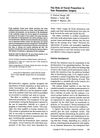 3 citations,
February 1997 in “Annals of Plastic Surgery”
3 citations,
February 1997 in “Annals of Plastic Surgery” The document concludes that successful hair restoration surgery should consider facial proportions and balance, and requires surgical skill, artistic judgment, and realistic goals for a natural look.
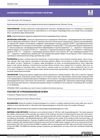 1 citations,
May 2021 in “Problemy e̊ndokrinologii”
1 citations,
May 2021 in “Problemy e̊ndokrinologii” Androgen levels can increase at any age, affecting symptoms like acne, hair loss, and prostate size.
 1 citations,
January 2016 in “Georg Thieme Verlag eBooks”
1 citations,
January 2016 in “Georg Thieme Verlag eBooks” The document concludes that ideal facial proportions are guided by specific measurements and symmetry to enhance beauty, but individual characteristics must be considered.
 1 citations,
October 2012 in “Medical Hypotheses”
1 citations,
October 2012 in “Medical Hypotheses” The conclusion suggests that treatments targeting root causes of chronic diseases may be developed by focusing on gene expression and lifestyle factors.
 August 2023 in “Gadua Journal of Pure and Allied Science”
August 2023 in “Gadua Journal of Pure and Allied Science” Ziziphus spina-christi leaf extract lowered blood sugar and protected organs in diabetic rats.
 December 2021 in “International journal of minor fruits, medicinal and aromatic plants”
December 2021 in “International journal of minor fruits, medicinal and aromatic plants” The document concludes that in Sri Lanka, 25 common plants are traditionally used as home remedies for various health issues due to their medicinal properties.
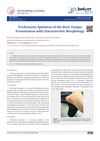 May 2020 in “JOJ Dermatology & Cosmetics”
May 2020 in “JOJ Dermatology & Cosmetics” A rare skin condition usually on the face was found on a man's heel.
 March 2018 in “Suez Canal University Medical Journal”
March 2018 in “Suez Canal University Medical Journal” New drugs targeting the JAK-STAT pathway show promise for treating inflammatory skin diseases.

IL6 is linked to higher risk of heart disease in people with a certain mouth condition.
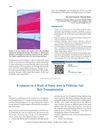 January 2014 in “Journal of Cutaneous and Aesthetic Surgery”
January 2014 in “Journal of Cutaneous and Aesthetic Surgery” The document suggests that for better patient satisfaction in hair transplants, high-quality photos are needed, and using a narrow donor strip might lead to fewer grafts and dissatisfaction, but filling the scar with FUE grafts and using tranexamic acid can improve results.
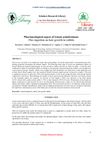
Eating flaxseed made rabbit hair longer and thicker and improved their weight and blood sugar and cholesterol levels.
 October 2012 in “Humana Press eBooks”
October 2012 in “Humana Press eBooks” Grape seed extract is good for skin care, with antioxidant, anti-inflammatory, and anti-cancer effects.
 1514 citations,
December 2011 in “Fertility and sterility”
1514 citations,
December 2011 in “Fertility and sterility” Experts agree that PCOS affects women's health in complex ways, but more research is needed to understand and treat it effectively.
 1461 citations,
March 2004 in “Annals of oncology”
1461 citations,
March 2004 in “Annals of oncology” Pegylated liposomal doxorubicin is as effective as conventional doxorubicin but causes fewer heart problems and side effects.
 1265 citations,
October 2013 in “The Journal of Clinical Endocrinology and Metabolism”
1265 citations,
October 2013 in “The Journal of Clinical Endocrinology and Metabolism” The guideline suggests using specific criteria to diagnose PCOS, recommends various treatments for its symptoms, and advises screening for related health issues.
 1113 citations,
August 1999 in “The New England Journal of Medicine”
1113 citations,
August 1999 in “The New England Journal of Medicine” Hair follicle biology advancements may lead to better hair growth disorder treatments.
 989 citations,
August 2007 in “The Lancet”
989 citations,
August 2007 in “The Lancet” PCOS is a complex condition with major health impacts, needing more research for better diagnosis and treatment.
 434 citations,
October 2003 in “PTR. Phytotherapy research/Phytotherapy research”
434 citations,
October 2003 in “PTR. Phytotherapy research/Phytotherapy research” Natural products in cosmetics are beneficial for skin and hair care with low toxicity.
 418 citations,
June 2003 in “Endocrine Reviews”
418 citations,
June 2003 in “Endocrine Reviews” While PCOS might increase the risk of heart disease, there's not strong evidence to prove it causes earlier heart problems.
 373 citations,
September 2009 in “Obstetrics & Gynecology”
373 citations,
September 2009 in “Obstetrics & Gynecology” The bulletin provides guidelines for diagnosing and managing PCOS, suggesting weight loss, hormonal contraceptives, and diabetes screening, with clomiphene for infertility and various treatments for excess hair.
 356 citations,
September 2014 in “Journal of Clinical Research in Pediatric Endocrinology”
356 citations,
September 2014 in “Journal of Clinical Research in Pediatric Endocrinology” Childhood obesity is rising globally due to various factors, and early prevention and healthy lifestyle changes are crucial.
 356 citations,
March 2012 in “Trends in Plant Science”
356 citations,
March 2012 in “Trends in Plant Science” Auxin and ethylene hormones both work together and against each other to control plant growth.
 286 citations,
January 2009 in “Human Reproduction Update”
286 citations,
January 2009 in “Human Reproduction Update” Women with the NIH type of PCOS have more obesity and higher risk of diabetes and heart disease than those with other types of PCOS.






























